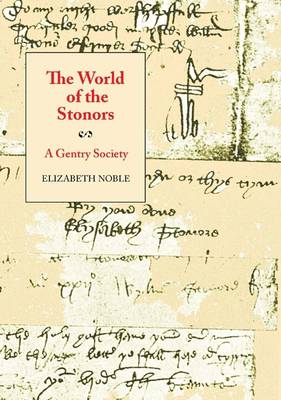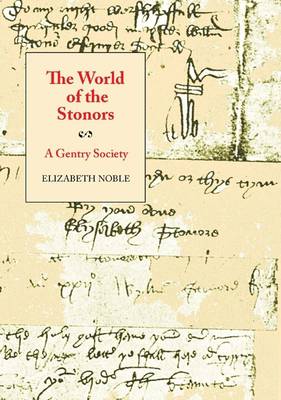
- Afhalen na 1 uur in een winkel met voorraad
- Gratis thuislevering in België vanaf € 30
- Ruim aanbod met 7 miljoen producten
- Afhalen na 1 uur in een winkel met voorraad
- Gratis thuislevering in België vanaf € 30
- Ruim aanbod met 7 miljoen producten
Zoeken
Omschrijving
The Stonor letters and papers are second in quantity only to the Paston letters. Nevertheless, while studies of the 'parvenu' Pastons of Norfolk abound, no historian has used the Stonor archive to write about this significantly longer-established gentry family from Oxfordshire, despite the fact that their letters and papers have been available in print since the early twentieth century and have been recently re-issued. This present study helps to rectify that oversight. It argues that lineage, land and lordship were crucial elements in the Stonors' world, both materially and culturally, providing them with status and identity. They asserted their gentle lineage using a range of symbolic and other means, but did not neglect the more mundane management of their scattered lands. Ties of lordship with the influential helped them to retain these lands, and it is clear that the Stonors worked hard to foster relationships with kin and neighbours: indeed, their letters and papers allow us a far more extensive yet intimate view of all these social ties [extending over several counties] than is usually possible for the gentry. Dr ELIZABETH NOBLE teaches in the School of the Humanities, University of New England, New South Wales.
Specificaties
Betrokkenen
- Auteur(s):
- Uitgeverij:
Inhoud
- Aantal bladzijden:
- 234
- Taal:
- Engels
Eigenschappen
- Productcode (EAN):
- 9781843834298
- Verschijningsdatum:
- 14/01/2009
- Uitvoering:
- Hardcover
- Formaat:
- Ongenaaid / garenloos gebonden
- Afmetingen:
- 165 mm x 239 mm
- Gewicht:
- 544 g

Alleen bij Standaard Boekhandel
+ 354 punten op je klantenkaart van Standaard Boekhandel
Beoordelingen
We publiceren alleen reviews die voldoen aan de voorwaarden voor reviews. Bekijk onze voorwaarden voor reviews.







